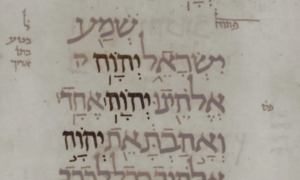IN Chinese communities, firecrackers explode all night long. In Japan, gongs of Buddhist temples reverberate in the air 108 times. In the United States, bells, automobile horns, and whistles break forth at the stroke of midnight. All on New Year’s Eve.

Did you know that all this hullabaloo, though taking various forms, was originally done for one basic reason: to ward off demons and purify people for the coming year? Most people consider the din and racket of New Year’s Eve to be merriment accompanied by elaborate New Year’s celebrations. But what is your view of New Year’s celebrations? Does it agree with the Bible?
Overdrinking and Overeating
Mircea Eliade, an internationally known professor of religious history, describes the rite associated with New Year’s Eve as “an interlude of Carnival, Saturnalia, reversal of normal order, ‘orgy.’” So, in many lands, drunken revelries usually result.
In Japan, for example, businessmen use bonenkai (parties to forget the old year) as an excuse to overdrink. These are followed by shinnenkai (New Year’s parties) where more food and drink are served. As a result, “tigers” rage on the late trains during this time of the year. In Japanese, the expression “tigers” alludes to drunkards who are tolerated in this season.
Does not acting in such a manner or even tolerating such disgrace degrade human dignity? The apostle Paul admonished Christians in Rome: “As in the daytime let us walk decently, not in revelries and drunken bouts . . . But put on the Lord Jesus Christ, and do not be planning ahead for the desires of the flesh.” (Romans 13:13, 14) Can you imagine Jesus organizing a party featuring overdrinking and overeating for his disciples? Hardly!
Perhaps Paul’s reference to “revelries and drunken bouts” included New Year’s festivities. Why? The book Christmas Traditions, by William M. Auld, states: “From the time of Julius Cæsar [46 B.C.E.] January 1 marked the beginning of the civil year and was a holiday season.” In addition, Auld reveals that “for at least three days feasting and merriment prevailed.”
Is It Greed?
In the Orient, people observe the custom of giving special monetary gifts to children during the New Year’s holiday. The Chinese use red packets of money. They believe that the color red will not only bring good luck and prosperity but also exorcise evil. The Japanese, though, use small white envelopes with auspicious signs on them. What do such practices promote?
“I used to look forward to the New Year’s holiday,” recalls a Japanese man, “and my main concern was how much otoshidama (New Year’s monetary gift) I would get that year.” Could this custom affect children? Yes, answers the column Vox Populi, Vox Dei in the Japanese newspaper Asahi Shimbun, which states: “Children secretly rank adults in the order of the amount of ‘otoshidama’ received from them.” The amount of money given has kept going up, reaching about 20,000 yen ($130, U.S.) per child in 1985.
Would not this custom promote greed? The adults are eager to have more prestige and the children more money. This is precisely how Vine’s Expository Dictionary of New Testament Words defines the word “greedy” found in 1 Corinthians chapter 6, namely, “(eager) to have more.”
What sort of parent would stir up greed in his offspring and let them cultivate “the love of money”? The Bible warns that “the love of money is a root of all sorts of injurious things.”—1 Timothy 6:10.
But there are even more reasons to be concerned about New Year’s celebrations.
Unsavory Origin?
Suppose you discover a creek with sparkling water, tempting you to drink of it. When you go up the stream, however, you find campers washing their dirty mess-tins and soiled clothes in that water. Would you still want to drink the water and risk contracting a disease? The same can be said of the customs of New Year’s celebrations. Though some celebrations may seem innocent to men, Jehovah, the God of the Bible, has seen their source.
Well, where do we find the earliest record of a New Year’s celebration? “The earliest description of a New Year festival known to us comes from ancient Mesopotamia,” answers Theodor Gaster in his book New Year—Its History, Customs and Superstitions. The clay tablets describing the New Year festival record “a program of ceremonies performed at Babylon since the remote days of the second millennium B.C.”
The Babylonian year started about the vernal equinox—in the month of March. The celebration lasted 11 days and was centered around the worship of Marduk, the city god of Babylon. The vestiges of the New Year festival of Babylon, such as mummers’ plays and fertility rites, are still observed during New Year’s celebrations around the world. The mummers’ parade in the city of Philadelphia (U.S.A.) on New Year’s Day and the fertility festival held in Akita City (Japan) on the 17th of January are but two examples of such relics.
God sees the religious practices originating in Babylon as polluted. He refers to the world empire of false religion, with its customs rooted in ancient Babylon, as “Babylon the Great” and warns: “Get out of her, my people, if you do not want to share with her in her sins, and if you do not want to receive part of her plagues.” (Revelation 18:2, 4) Therefore, since the features of New Year’s celebrations betray their pagan origins, people wanting to heed the Bible will steer clear of such festivities. {https://wol.jw.org/}


